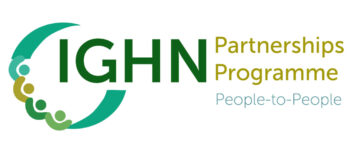
We are delighted to announce that the ESTHER Ireland Programme has now transitioned to the IGHN Partnerships Programme. Building on our successes to date, this change will enable us to further strengthen our impact as we fully integrate with the Irish Global Health Network (IGHN). We have introduced a new strategic direction for the programme after in-depth consultations throughout 2024. We are grateful for the ongoing support of Irish Aid and our partnership with the HSE Global Health Programme. For full information on the IGHN Partnerships Programme including updates on grant rounds, visit our website.
For further information on the new grant round visit the IGHN Partnerships Programme Grants page on the IGHN website.
To stay up to date on grant rounds, training & learning opportunities, partnerships news and more, subscribe to our Partnerships Panorama newsletter here.
This ESTHER Ireland site will continue to serve as a repository for materials, resources, and historical information related to the ESTHER Ireland Programme and the ESTHER Alliance for Global Health Partnerships, making these valuable resources accessible to all.
ESTHER Ireland was an initiative of the HSE Global Health Programme and was previously part of the European ESTHER Alliance for Global Health Partnerships. Under this initiative, the Global Health Programme facilitates and supports Irish health services and institutes to develop linkages and twinning partnerships with counterpart institutions in low and middle-income countries.

The partnership approach aims to make a significant contribution to health outcomes in the global south by addressing inequities in access and coverage while improving the quality of services through capacity building and institutional development. Human resource capacity is strengthened through peer-to-peer relationships between personnel working in partner institutions. Accordingly, ESTHER-supported partnerships are “agents of change” in a multiplicity of intervention areas that focus on the creation of sustainable and resilient partnerships with positive changes at all stages of the results continuum. Self-mobilisation and financial leverage are considered key output performance indicators from a quality partnership and are expected to make a contribution to improved health outcomes.

